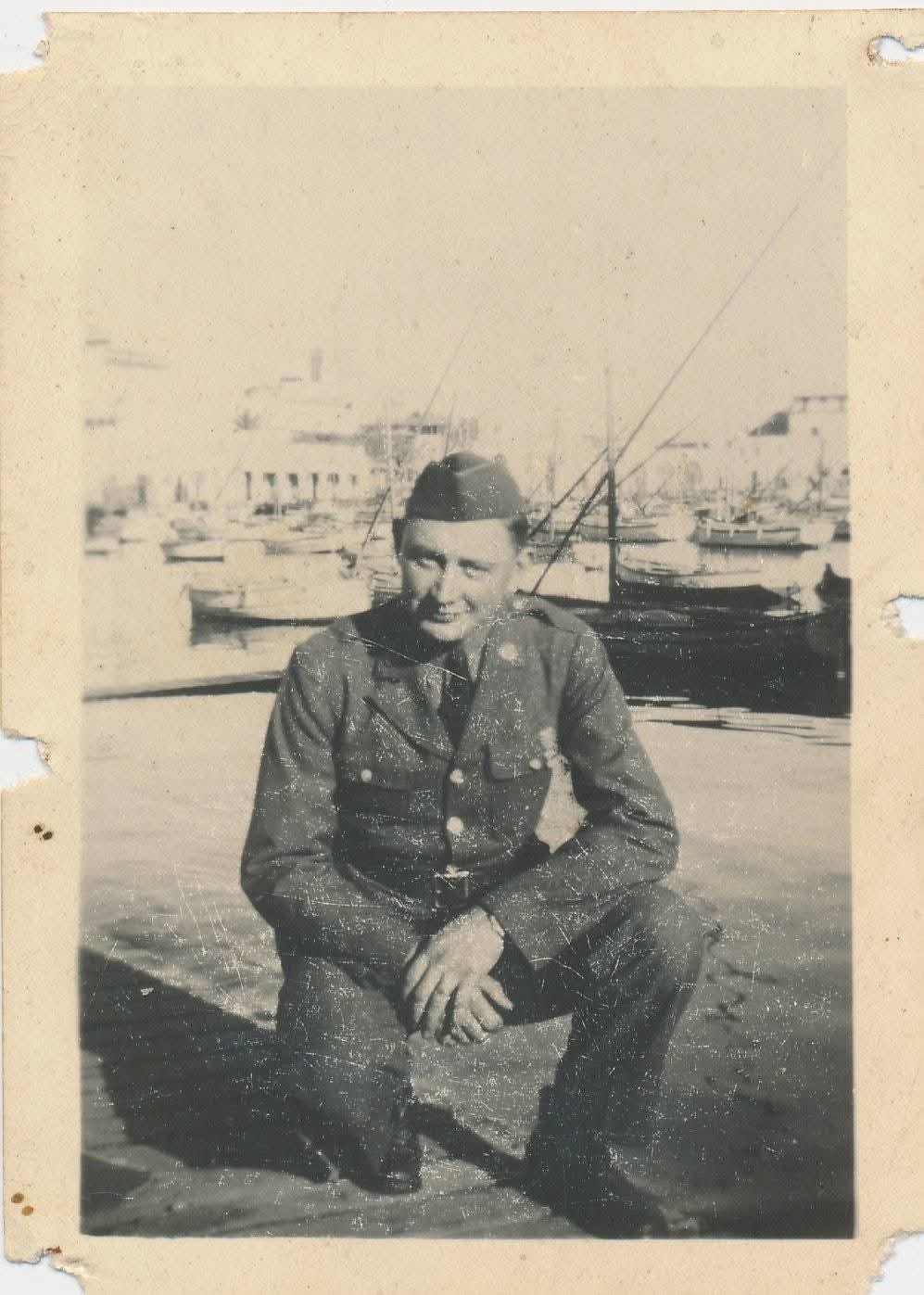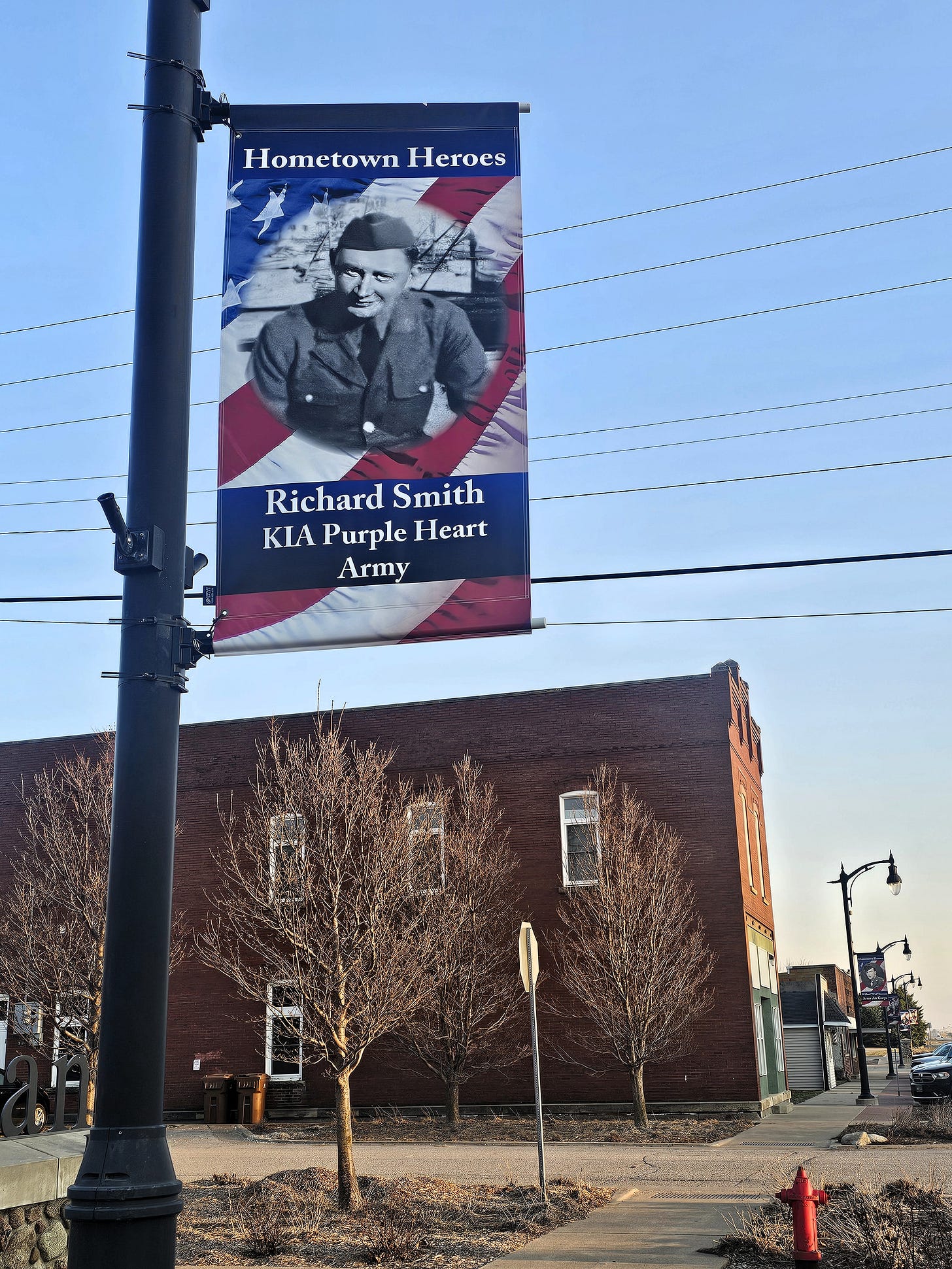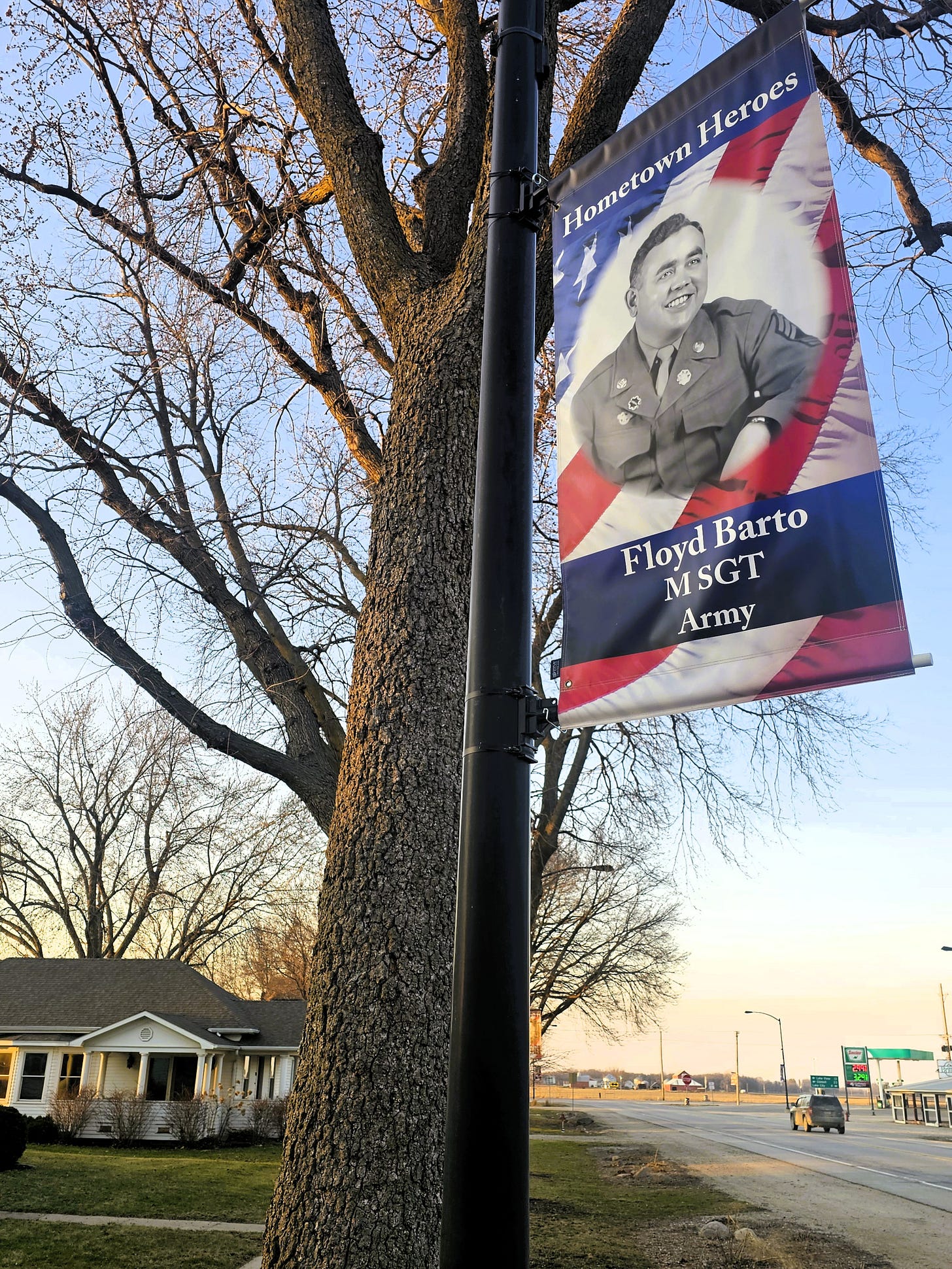Honoring Iowa’s Hometown Heroes
Faces from the past in Auburn remind us what Memorial Day is all about.
Faces capture attention. That’s something I learned early in my journalism career, when I was trained to take pictures of the people I featured.
I think about this each time I drive through Auburn. As I roll along Highway 71 through the heart of this Sac County town, I see patriotic banners featuring pictures of local men and women who served in the U.S. military. The black-and-white images—some with smiling faces—some with sober expressions—grace the streetlight poles.
I’ve always wondered about the stories behind these captivating banners, so I reached out to my friend Donetta (Smith) Stewart. For the past 17 years, she has been the librarian at the Auburn Public Library. She’s also one of the keepers of the knowledge in this small town of roughly 300 residents.
Donetta’s uncle, Richard Smith, is featured on a banner southeast of the library. “Dad didn’t talk much about Richard when I was growing up,” said Donetta, referring to Don Smith, Richard’s younger brother. “It was only later in life when I started asking more questions that he started telling me more.”

Remembering a life cut short
Richard was born December 23, 1919, to Frank and Janet Smith. He attended country school and graduated from Auburn High School in 1936. The likeable, easy-going young man was farming with his father when America entered World War 2.
As his buddies began enlisting, Richard wanted to join the service, too. When Janet pleaded with him to stay home, he honored his mother’s wishes. Uncle Sam came calling, however, in 1941. Richard was drafted in the U.S. Army and completed basic training at Camp Claiborne in Louisiana.
While his Auburn buddies served stateside, training other soldiers, Richard was sent to England and then Africa, along with the Red Bull Infantry Division. Richard was on the front lines when Erwin Rommel (a German field marshal known as the “Desert Fox”) launched the Battle of Kasserine Pass on February 14, 1943.
The next day, February 15, Richard was killed in action. He was just 24 years old. “Dad always said that after Richard died, the laughter went out of the house,” Donetta said.
After the war, one of Richard’s commanding officers traveled to the Smith farm to pay his respects and fill in some gaps. “He told Frank that one minute Richard was there, and the next minute he was gone,” Donetta said.

Honorable legacies live on
Richard was buried near Carthage, Tunisia, in the North Africa American Cemetery, which contains the remains of more than 2,800 war dead. Thanks to dedicated volunteers, including Jane Barto, coordinator for the Auburn Historical Society (AHS), he now has a banner along Pine Street in his hometown.
It’s one of 23 banners that the AHS and the City of Auburn installed in November 2024, in time for Veterans Day. “It’s important to honor this heritage,” said Jane, who was inspired by similar banners she’d seen in Arlington, Nebraska. “There’s something very personal about putting faces with the names.”

The Auburn banners feature local men and women who served in World War 2, Korea, Vietnam and Desert Storm. They include Jane’s father, Floyd Barto, an Army veteran, and her uncle, Frank Lee, who helped the Allied forces liberate the Auschwitz concentration camp in early 1945. “He said the human suffering was beyond description and wouldn’t talk about his experiences in the war,” said Jane, who knew Lee as “Uncle Chick.”
That’s why the banners are so important, she added. They draw people in and start the conversation about these veterans’ stories. “We get so many positive comments,” Donetta said. “Richard and the other local heroes are not forgotten.”
Have you explored the variety of writers in the Iowa Writers’ Collaborative? They are from around the state and offer an intriguing variety of perspectives, focused on Iowa and the Midwest. Please consider a paid subscription. It helps keep us going, and it keeps you in the know. Thank you!




These banners are important, meaningful and worthy of being remembered. Thank you for spotting their significance and telling this story.